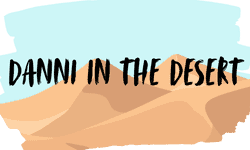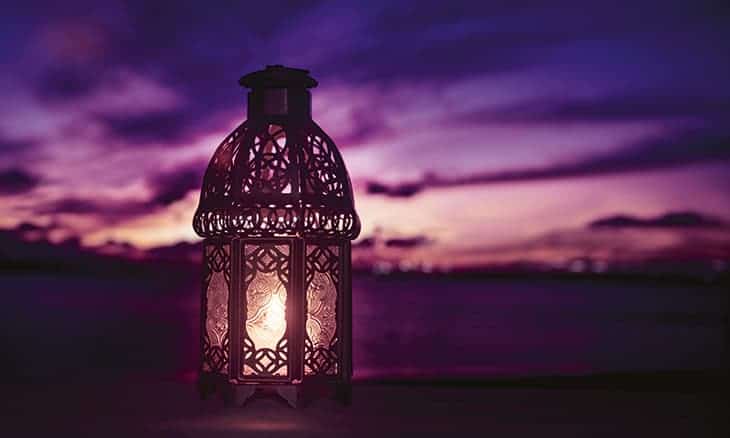Ramadan guide and Ramadan Dubai dates until 2025
This word ‘Ramadan’ keeps popping, maybe you’re even wondering who is Ramadan? Jokes aside… This article is for you if you want to learn a bit more about Ramadan!
Ramadan is an important part of the Islamic faith, where Muslims fast and focus on their religion.
As a converted Muslim with years of experience, I understand both cultures and can help explain it from the Western perspective.
Who or what is Ramadan?
Ramadan is not a who, it’s a what!
Ramadan is the ninth month of the Islamic calendar and is the holiest month in the entire year for Muslims. It’s practiced worldwide, where they observe fasting in honour of Allah (God).
It’s also a time of spiritual reflection and prayer. Acts of charity are also done in the month.
When is Ramadan?
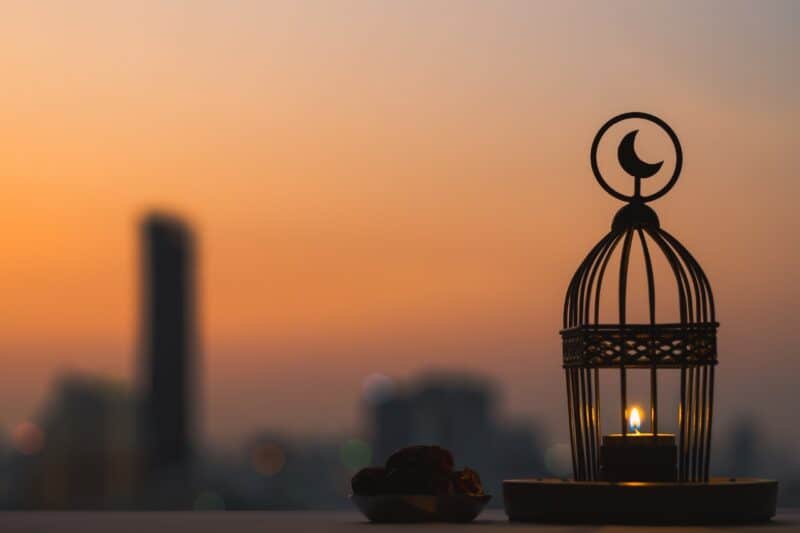
Ramadan changes every year. This is because Islam uses a lunar calendar and the moon has to be sighted before the start of Ramadan is declared.
Countries have differing start dates due too, as the moon isn’t visible in different parts of the world. some countries choose to follow a nearby Muslim country if they sight the new moon also. The below are based on the UAE.
Past and predicted Ramadan dates:
- 2020 : Evening of Thu, Apr 23, 2020 until Evening of Sat, May 23, 2020
- 2021 : Evening of Mon, Apr 12, 2021 until Evening of Wed, May 12, 2021
- 2022 : Evening of Fri, Apr 1, 2022 until Evening of Sun, May 1, 2022
- 2023 : Evening of Tue, Mar 21, 2023 until Evening of Thu, Apr 20, 2023
- 2024 : Evening of Sun, Mar 10, 2024 until Evening of Tue, Apr 9, 2024
- 2025 : Evening of Fri, Feb 28, 2025 until Evening of Sat, Mar 29, 2025
Ramadan starts on the evening that the moon is sighted, so people will attend extra prayers on the very first night and begin their first day of fasting after.
Ramadan ends once the sun sets and the moon is sighted, although Eid isn’t celebrated until the day after.
Staying in Dubai during Ramadan
In previous years, many people in Dubai chose to fly home for Ramadan, and tourists avoided visiting, but actually, it can really be a magical time if you do choose to stay in or visit Dubai!
You can find good deals on hotels and other activities, as Ramadan is classed as off-season. The Iftar tents are a magical and affordable experience with many restaurants either offering buffet dinners or set menus.
How does fasting for Ramadan work?
Fasting during Ramadan is done by abstaining from food and drink from sunrise (Fajr prayer) to sunset (Maghrib prayer) for the entire month. This fast is known as sawm in Arabic and it’s one of the five pillars of Islam.
Fasting teaches Muslims patience, humility and devotion to Allah.
People excluded from fasting are those who are sick, pregnant, lactating women and people who are travelling. During Ramadan, Muslims also try to focus on spiritual matters such as prayer, reading the Quran and reflecting on their actions.
Why do Muslims fast during Ramadan?
Muslims fast because it is one of the five pillars of Islam. It is prescribed in the Quran and we can see from the hadiths that Prophet Muhammed (peace be upon him) also fasted during the month of Ramadan.
It is obligatory for Muslims during the month of Ramadan.
There are also great rewards for Muslims who fast, and many sins are forgiven.
Other personal reasons Muslims give for fasting is that it brings you closer to Allah (God) and purifies oneself. Makes you feel humble and reminds you of the blessings in your life. It also has health benefits.
What else is part of Ramadan?
It is also a time of celebration and reuniting of family ties. You have suhoor (the meal before dawn) and iftar (the meal after dusk where you break your fast) with your family and friends.
Many choose to feed the needy and invite guests during this time. It’s also encouraged to share the Quran and Islamic knowledge during this time and treat others with kindness. You also try to avoid gossip and arguments.
Another practice during Ramadan is called Itikaf, where people stay in a local mosque with others to focus on their prayers. Some choose to do it for the last 10 days of Ramadan, as Allah mentions the last 10 days having the highest rewards.
Why is fasting hard?
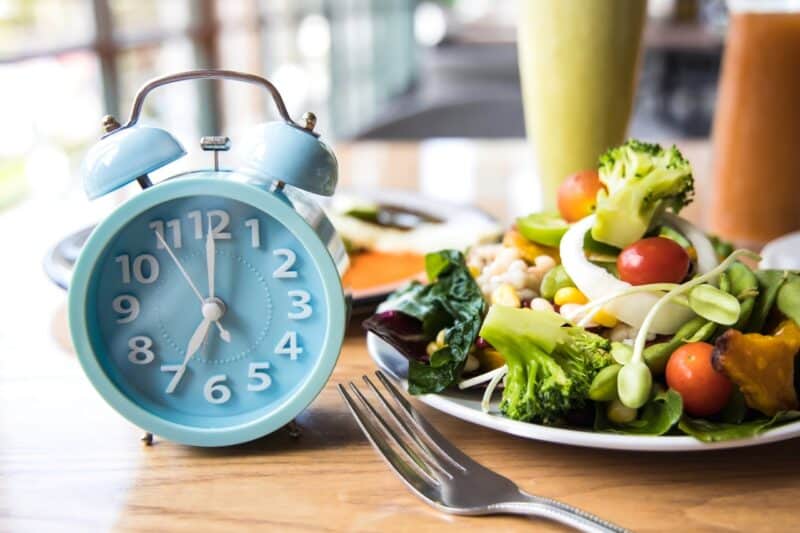
Fasting can be challenging and it’s normal to have doubts and fears. There are a few reasons which make attempting to fast hard:
- The temptation to eat and seeing others eating, it requires great determination not to eat
- Lack of willpower, it’s easier to give in and eat
- In the modern world, we’re not used to dealing with sustained hunger
- Our bodies are biologically designed to fight starvation and hunger
- Lack of support, those around us either actively hinder our attempts or indirectly
Ramadan can help because of the group support and if around other Muslims, a lack of visual temptation since they will also be fasting at the same time.
Health benefits of fasting
Fasting has been shown to have various health benefits including reducing the risk of cancer, diabetes, stroke and other diseases along with increasing longevity. So there are scientifically proven benefits to fasting as well.
You make better food choices because you know it needs to sustain you through the day. It also makes you realise your own food addictions. For me, my coffee addiction was actually a lot stronger than my food addiction.
Many Muslims also report mental benefits fasting has, including feeling more aware, more focused and feeling more humbled which increases the positivity you feel with your own life.
In terms of self-development, it is a time of learning how to cope with being hungry and tired. It emphasizes that your time and energy are limited. So you become far more selective about what you engage in.
Finally losing weight or body fat can also be an additional benefit of fasting.
What was my first time fasting for Ramadan like?
It was not easy to fast! I only managed to last 10 days of fasting for my very first Ramadan in Dubai and not the whole 30 days. Just the smell of coffee was driving me crazy and not drinking water was most definitely the most challenging aspect. The second hardest part was the tiredness. It was almost impossible at times to stay focused and I was worried to drive long distances.
My overall experience was positive though! I really enjoyed finishing work early, having a nap and staying up late to eat. Getting up at 4 am was not as enjoyable but the sense of calm after fasting was a truly great benefit.
The moral support and feeling connected to other human beings while completing this journey was also a truly heart warming experience. I think this was one of the best aspects of Ramadan.
Sadly, I’ve also had people react quite negatively despite the positives of my journey. The same reaction seems to happen with vegetarianism. I’m not quite sure why but when someone else changes their eating habits, it really seems to stir an emotional response from those around them.
Fasting for Ramadan definitely doesn’t get as bad as a reaction when compared to vegetarianism but it definitely seems to worry those around me that I’m going to become Muslim (since I wasn’t when I first fasted) or that I shouldn’t be starving myself.
What did I learn from my first time fasting for Ramadan?
So what was the outcome of fasting for Ramadan? What can I take away from my experience? This truly was a great learning experience for me so I’d love the share what I feel I’ve gained and those important lessons.
There is a lot of ignorance in the world towards Muslims and Islam
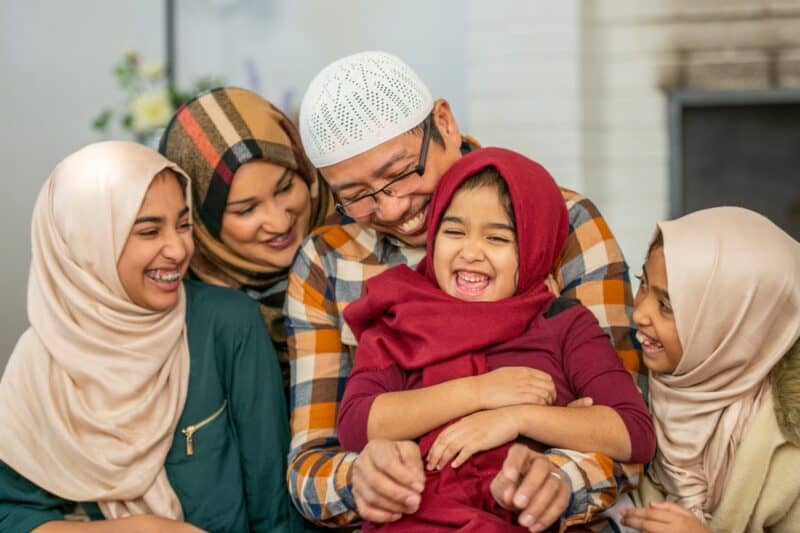
Firstly I was really surprised by people’s reactions. I didn’t think it would be that shocking that I fasted but a lot of people were really surprised I wanted to. Not always in a positive way.
The second part was a lot of the questions, “yes you can’t have water” was repeated so many times! Also, I had to learn many new words such as “suhoor” and “iftar.” Despite living in Dubai for years, I had no idea what these words were. “I’m getting up before Fajr” would get a puzzled look from any none Muslims I spoke to.
When speaking to people in the UK, which is back home for me. People really had a fascination with whether I’d converted to Islam. I was asked over and over again with genuine concern why I was fasting for Ramadan or if I was thinking to become Muslim.
My energy and time are limited
This is probably the most important lesson I learnt from fasting for Ramadan. You truly realise what is more important to you as you just don’t have the energy to deal with trivial matters. So it really focuses on what is worth both your time and energy.
In the past when I would have probably disagreed with a colleague I just let it go because I didn’t have the energy to argue.
I have more mental strength than I thought
It really shows you the strength of your character. Staying determined and working when you feel like you should be sleeping or waking up early so you don’t regret not eating during the day. All these are challenges that come with fasting for Ramadan. You really have no idea at the beginning if you’ll be able to do it or not. So it’s truly surprising when you manage to!
To be more grateful
There are many people in the world right now who are hungry. This isn’t a choice for them or a yearly event. Fasting for Ramadan really made me grateful for what I do have and even a simple thing like having a fridge full of food is something to be happy about.
That’s what’s so great about Ramadan, it’s a yearly reminder!
How being part of a community feels
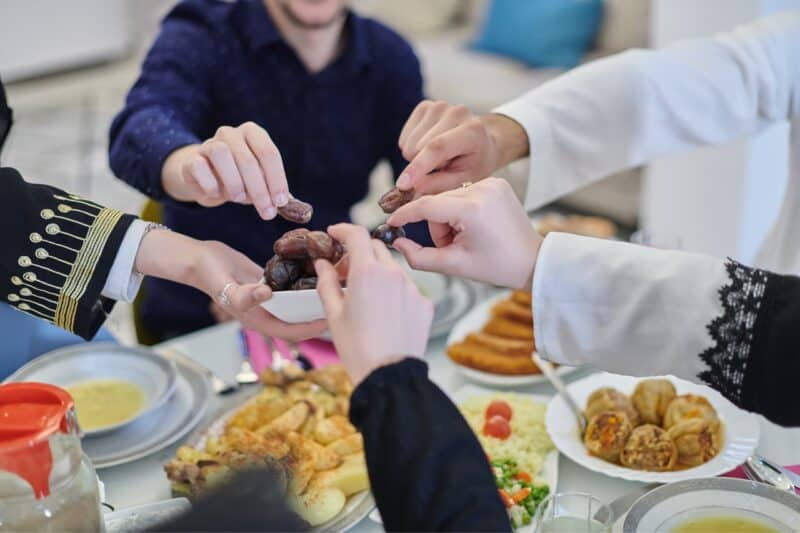
This is one of the best things about Ramadan and how everyone comes together. We live in a world where we’re on our phones and rushing to work. It’s very easy to end up feeling so disconnected from the other human beings around us. Ramadan helps bring everyone back together.
There’s also a scheme in Dubai called “The Ramadan Fridges” where you can choose to donate food along with packing and giving out the food. If you really want to feel part of the community, I highly recommend taking part in this.
Getting invited to Iftars and feeling the Ramadan “magic” is a truly special feeling. Being inside Ramadan tents, where everyone comes together to enjoy good food. You can just feel the happiness and love in Dubai amongst all the people. It’s also a great time to meet new people through friends!
What’s really important in life
This ties into knowing your time and energy is limited. It really does have a profound effect on how you think and feel during it. This is mostly due to the humbling factor Ramadan has and you truly feel material things are less important during this month.
Check out some of my other related articles here:
- What is Ramadan in Dubai like? And what can you expect?
- The best and most luxurious Iftar Buffets in Dubai
- Guide to first time visiting a Mosque and the rules you should know!
- Practical tips for praying at work and not missing salah
- Where can I find English Khutbahs in Dubai and online?
- 10 reasons explained “Why do women wear Hijab?“
Understanding everything that goes into Ramadan will give you a greater appreciation for its importance and beauty.
So, no matter what your circumstances or beliefs, Ramadan is a sacred time for people of all backgrounds and cultures to come together in celebration and appreciation of the blessings in their lives.
That is why it is so important to reflect on our own lives and take the opportunity during this holy month to deepen our faith and connection with God.
I hope you’ve enjoyed learning a little bit more about Ramadan and what it was like fasting for Ramadan. Along with why Muslims fast! If you’re planning to spend Ramadan in Dubai or the Middle East, I hope you have an amazing time!
Looking to save money while visiting or living in Dubai? Join our FREE facebook group where we help you save money on hotels, activities, dining out, nights out and more!
Read more Plan your visit to Dubai Guides
*This article contains affiliate links, as an Amazon Associate and a member of other affiliate programs, I earn a commission when you click a link and a qualifying purchase is made. (See Disclosure for more details)
